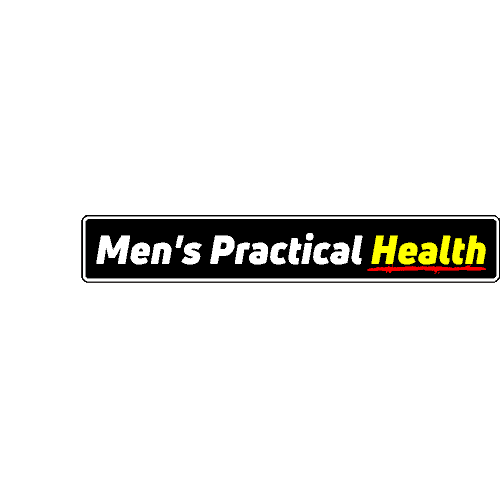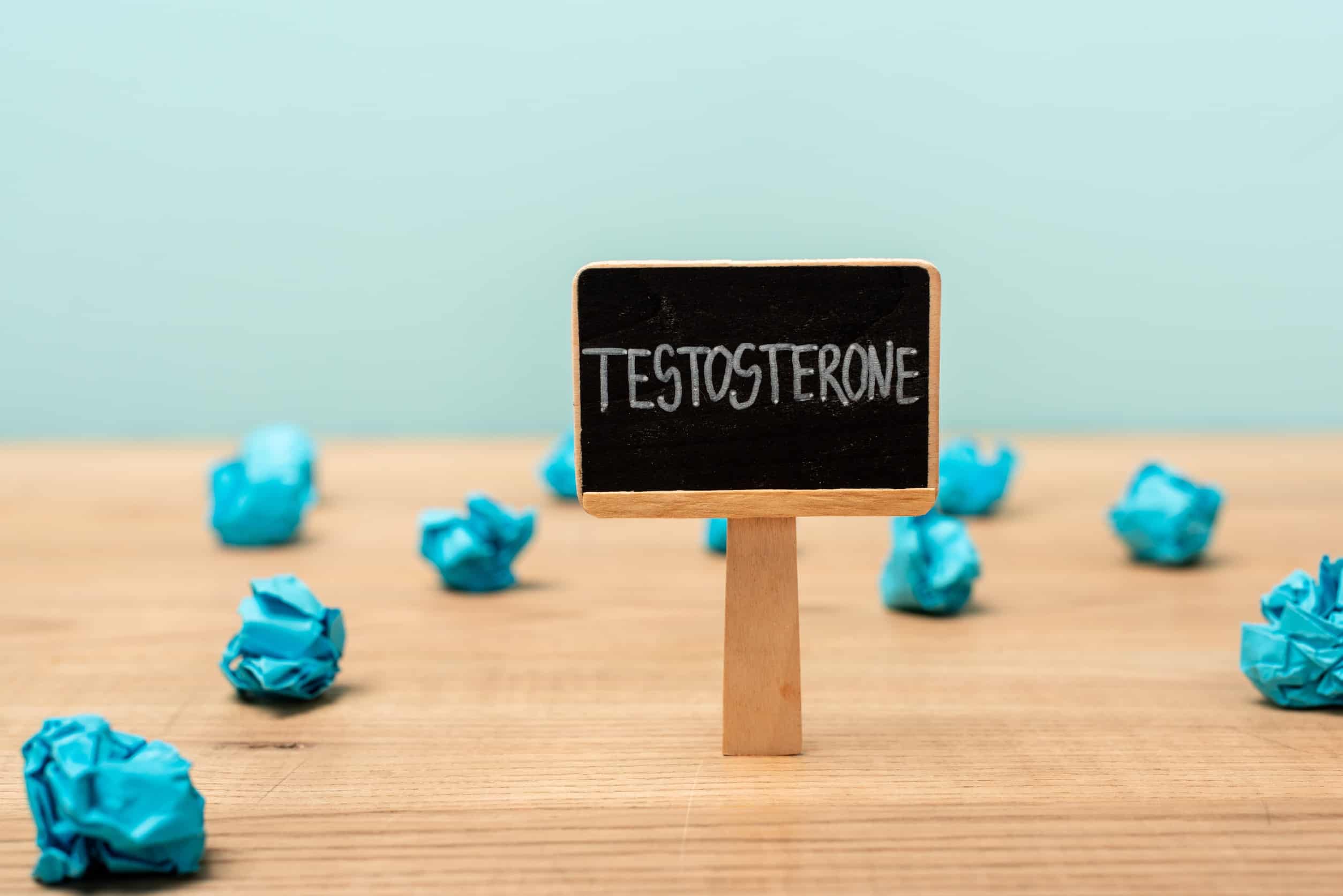Does exercise increase testosterone? is an interesting topic for a middle-aged man who tries to keep fit.
Especially as I am getting older – I mean … approaching my prime.
So, I decided to do a little research to find out if exercise can increase testosterone in men …
And here is what I found.
Many studies have shown that exercise does increase short-term testosterone levels in men. Yet, the increased level depends on the type of exercise and other variables.
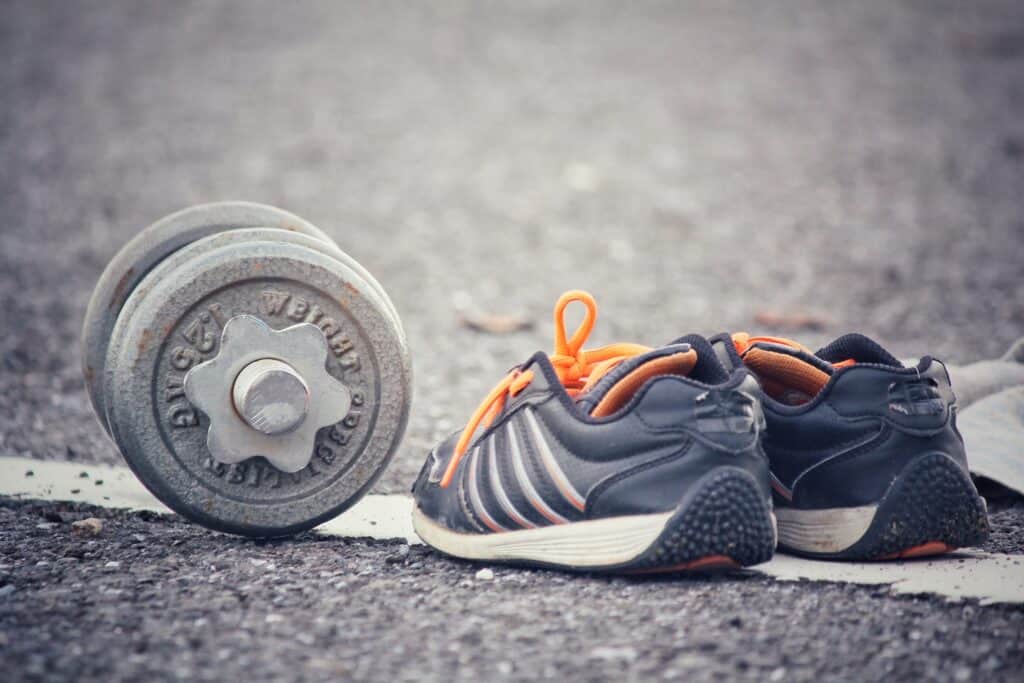
These variables that can affect the influence of exercise on testosterone levels include:
- Type of exercise (endurance vs. resistance training)
- Training intensity
- Age
- Lean vs obese
Before I go into the nitty-gritty of this topic, for any nerds out there, like myself, who want to know the different types of testosterone measured …
Here is a list:
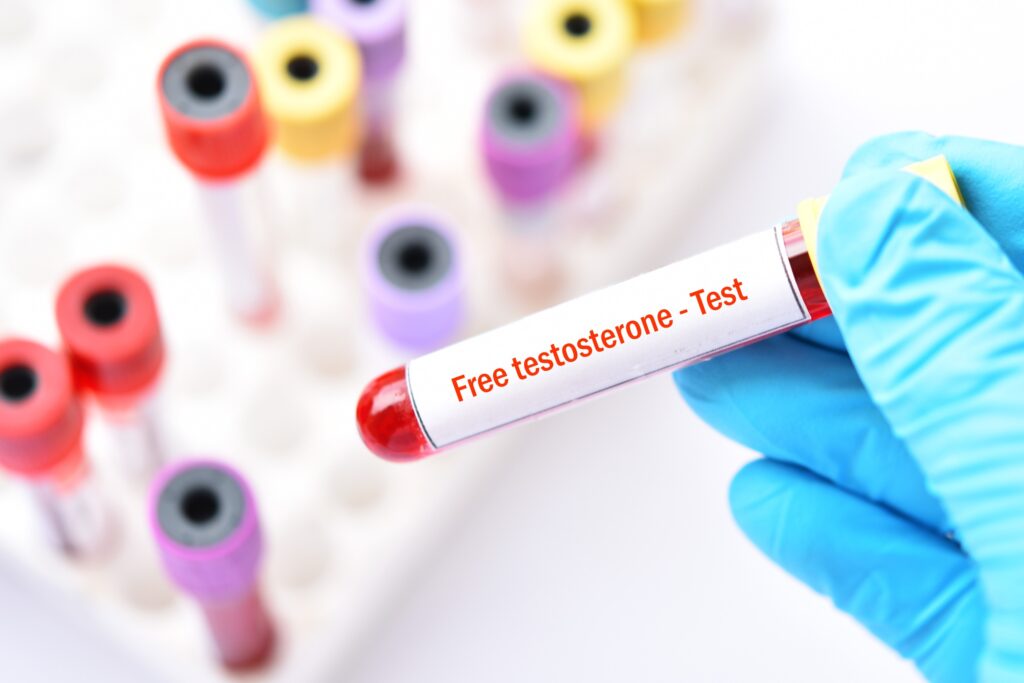
- Total Testosterone
- Free Testosterone
- Sex Hormone Binding Globulin (SHBG)
- Albumin-bound Testosterone
- Plasma Testosterone
- Serum Testosterone
Which Types of Exercise Impact Testosterone The Most?
As mentioned before, the exercise types can determine the testosterone response level.
According to the research, endurance and resistance training contribute to increased plasma testosterone.
But, strength training will increase testosterone levels more than aerobic training.
Also, the evidence shows that performing heavy compound movements may increase serum testosterone levels more than endurance exercises.
The Best Exercises to Boost Testosterone
So, which exercises should you incorporate into your routine to boost testosterone levels? Let’s break it down.
Multi-joint movements are the best exercises to boost testosterone. This is due to compound movements needing larger muscles to work.
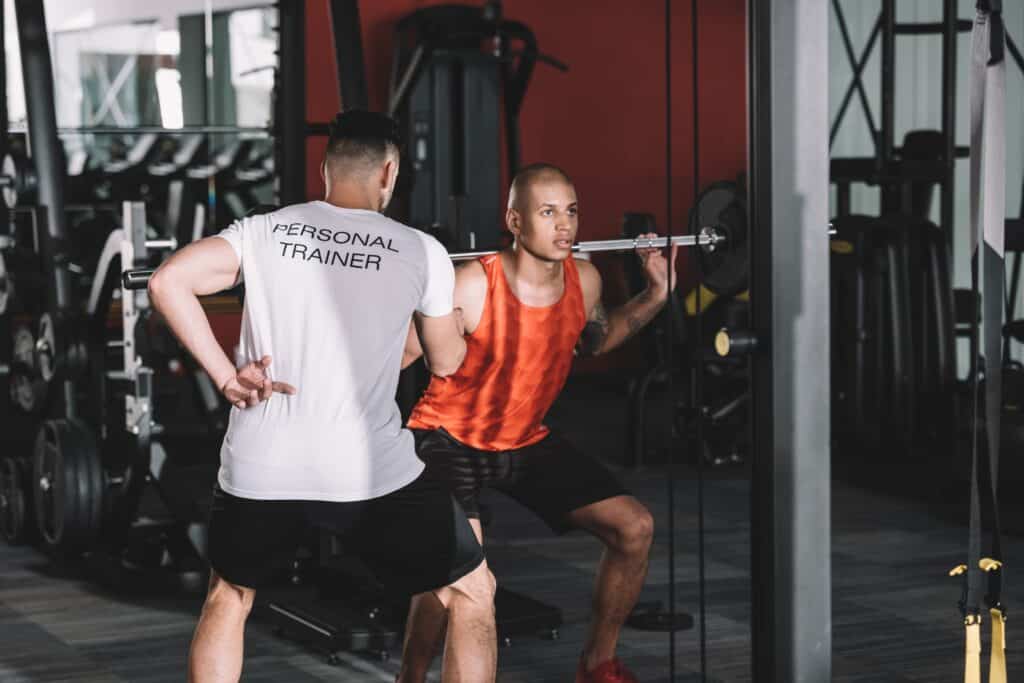
The most effective compound exercises include:
- Squats
- Deadlifts
- Bench presses
- Barbell row
What Factors Affect The Influence Of Exercise On Testosterone Levels?
When attempting to increase your testosterone level through exercise, the following factors can have an impact:
- Training intensity
- Age
- Lean vs obese
Training intensity
Studies show that training must be performed at 70-85% of one rep max to create the optimum stimulus for testosterone increase. This is generally the training method used for hypertrophy training.
Age
The research has shown that free testosterone does increase in all age groups; however, the increase is more profound among younger men.
This should not deter you from using strength training to help your testosterone levels if you are middle-aged or older, as you can still benefit …
But due to the ageing process ( I can’t help you with getting older) causing a reduction in the efficiency of Leydig cells, the younger population will benefit most.
Lean vs obese
This may sound contradictory after stating that resistance training is superior to aerobic exercise …
Yet, when it comes to men carrying a bit of timber (overweight if you’re not familiar with that phrase), aerobic exercise has been found to increase the baseline of testosterone in this study.
BUT!..
And this is where my warning of possibly contradicting myself stops.
This is because, after the rise of testosterone in the group of men who have taken part in the various research, there is something else that may have helped contribute to the increase in testosterone other than the aerobic exercise …
And this is weight loss.
After 12 or more weeks, the men who participated lost weight. This weight loss may positively affect testosterone levels more than aerobic training.
On this basis, I recommend doing resistance training ahead of endurance exercise.
Can A Lack Of Exercise Decrease Testosterone?
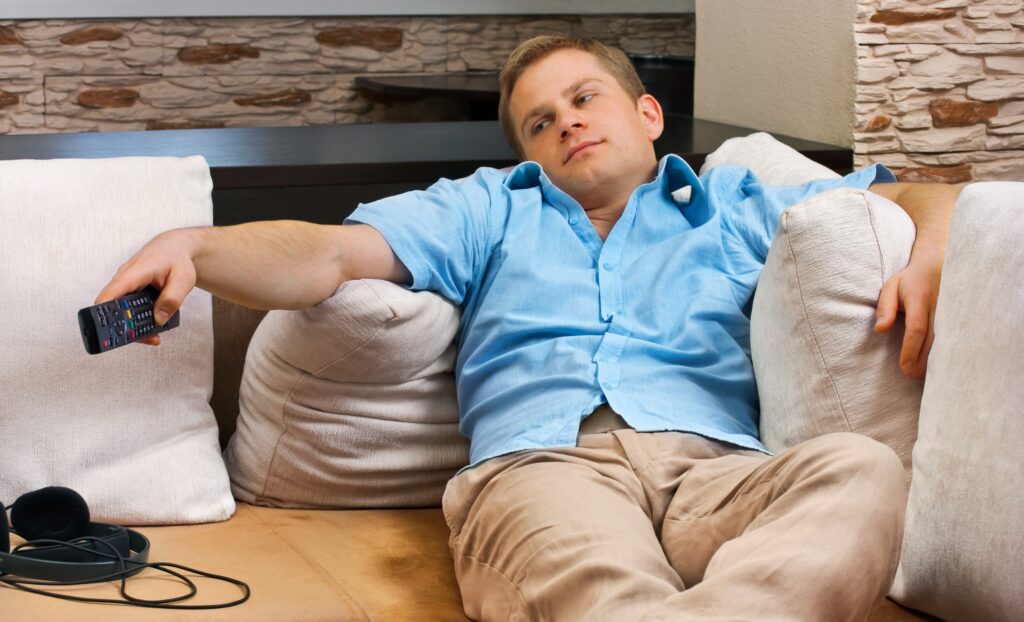
Indeed, a lack of exercise can decrease testosterone levels in men. Sedentary lifestyles have been linked to lower testosterone production, as the body requires regular physical activity to maintain optimal hormonal balance.
Several studies have shown that men who do not engage in consistent exercise tend to have lower testosterone levels compared to their active counterparts.
Which means the absence of physical activity can also lead to weight gain and increased body fat, negatively affecting testosterone production.
Consequently, incorporating regular exercise into your daily routine is advised for testosterone production and overall health and well-being.
Will Aerobic Training Decrease My Testosterone?
Aerobic training or cardio, often known for its heart health benefits, Can lower a man’s testosterone.
Research has shown that endurance athletes actually have less testosterone than sedentary individuals.
Now, before you throw your running trainers in the bin …
You should be aware that this may be because of the volume and intensity of training.
For example, the studies I have looked at have their subjects training three times per week with a level of intensity between 55-85%.
How Long Does the Testosterone Boost Last After Working Out?
There is clear evidence of the short-term increase in testosterone due to the response to weight training.
Research has shown that the elevation in testosterone levels can last anywhere from 15 minutes to an hour post-workout, with some studies noting a peak at around 30 minutes.
This temporary surge can have a positive impact on muscle growth and recovery.
However, the results regarding normal resting levels are not as clear.
Some studies have shown positive testosterone responses for resting levels. At the same time, other research that has taken place could not find any increases.
My opinion on this, which I can’t back up with evidence now, is that young men will be able to boost their normal testosterone levels. In contrast, middle-aged men might be unable to increase their testosterone significantly.
Still, physically active men will benefit from the hormonal responses, which will help support healthy testosterone levels.
Why Should I Increase My Testosterone Levels?
Maintaining optimal testosterone levels is pivotal for men’s health for several reasons. Testosterone is a critical hormone influencing muscle mass, fat distribution, bone density, and red blood cell production.

It also has a significant role in sexual and reproductive health, spearheading libido and sperm production. Plus, it’s integral to cognitive abilities and mood regulation.
When testosterone levels dip, it may result in specific symptoms.
Symptoms Of Low Testosterone
Evidence shows that sexual dysfunction, depressed mood, fatigue and difficulty concentrating are linked to low plasma testosterone – while sleep deprivation, being overweight, poor diet and alcohol consumption are physiological factors leading to low serum testosterone.
Speaking with a medical expert might be a good idea if you suffer from the symptoms mentioned.
Other Ways To Support Healthy Testosterone Levels
There are several alternative options or things you can do alongside resistance exercise, which can help support your testosterone levels.
Healthy Diet: Consuming lean proteins, healthy fats, fruits, vegetables, and whole grains can significantly impact testosterone levels. Include foods high in vitamin D, zinc, and magnesium, as they support testosterone production.
Adequate Sleep: Quality sleep is as essential as diet and exercise. Poor sleep can affect many of your body’s hormones, including testosterone.
Stress Management: Chronic stress is harmful to your hormonal balance. You can combat this by stress-relieving activities such as meditation, yoga, or deep-breathing exercises can help manage stress levels, promoting healthier hormone levels, including testosterone.
Avoid Alcohol and Drugs: Excessive consumption of alcohol and illicit drug use can affect testosterone production negatively.
Healthy Body Weight: Overweight men are more likely to have low testosterone levels, so make sure you maintain a healthy weight.
Supplements: Natural supplements like fenugreek, D-aspartic acid, and dehydroepiandrosterone (DHEA) have shown promising results in boosting testosterone levels.
Testosterone Replacement Therapy (TRT): This is a medically supervised treatment widely used to combat low testosterone levels. In TRT, synthetic testosterone is introduced to the body, essentially replacing the hormone that the body is insufficiently producing.
This therapy can come in several forms, such as injections, transdermal patches or gels, and oral tablets.
TRT helps restore testosterone levels to the normal range, thereby alleviating symptoms associated with low testosterone.
It’s essential to note that while TRT can help increase testosterone levels, it should be administered by a medical professional who has explained all side effects.
Remember to always consult a healthcare provider to determine if TRT is the right solution for you.
